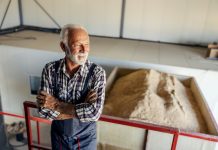
Lopinavir is a drug against HIV; hydroxychloroquine is used to treat malaria and rheumatism.
Until recently, both drugs were regarded as potential agents in the fight against the coronavirus SARS-CoV-2.
In a new study, researchers discovered that the concentration of the two drugs in the lungs of COVID-19 patients is not sufficient to fight the virus.
The research was conducted by a team from the University of Basel and the University Hospital.
In February 2020, a COVID-19 patient cohort was established at the University of Basel and the University Hospital in Basel that prospectively monitored a range of diagnostic means and potential treatments for COVID-19, including the off-label use of hydroxychloroquine and lopinavir/ritonavir.
The team tested 92 patients in their study. They found lopinavir blood levels were more than two to threefold higher than typically observed in HIV patients. Hydroxychloroquine levels were with normal range.
Second, there was a strong link between the inflammation marker levels in the blood and lopinavir levels.
Third, when the inflammation was blocked with the Interleukin-6 inhibitor Tocilizumab, lopinavir blood levels were much lower than the ones in patients without Tozulizumab treatment.
These results clearly indicate that drug metabolism enzymes (cytochrome P450 3A) are inhibited by systemic inflammation.
The team says caution is advised when prescribing CYP3A4 substrates such as Lopinavir/ritonavir or any other drug with a narrow therapeutic index to COVID-19 patients because of the risk of elevated drug levels and related toxicities.
Importantly, from the lopinavir and hydroxychloroquine concentrations in the blood, the study group calculated the corresponding concentration in the lung compartment—the anatomic site of SARS-CoV-2 infection.
The results strongly suggest that it is unlikely that either drug reaches sufficient concentrations to inhibit virus replication in the lung.
The WHO accepted the recommendation from the Solidarity Trial International Steering Committee to discontinue the trial’s hydroxychloroquine and lopinavir/ritonavir arms on 4 July 2020.
The team says that the results provide important antiviral information to the rationale of discontinuing the lopinavir/ritonavir treatment.
In fact, they add scientific reasoning why hydroxychloroquine and lopinavir are not effective against the SARS-CoV-2.
One author of the study is Professor Catia Marzolini, a professor for experimental medicine at the University of Basel.
The study is published in Antimicrobial Agents and Chemotherapy.
Copyright © 2020 Knowridge Science Report. All rights reserved.



